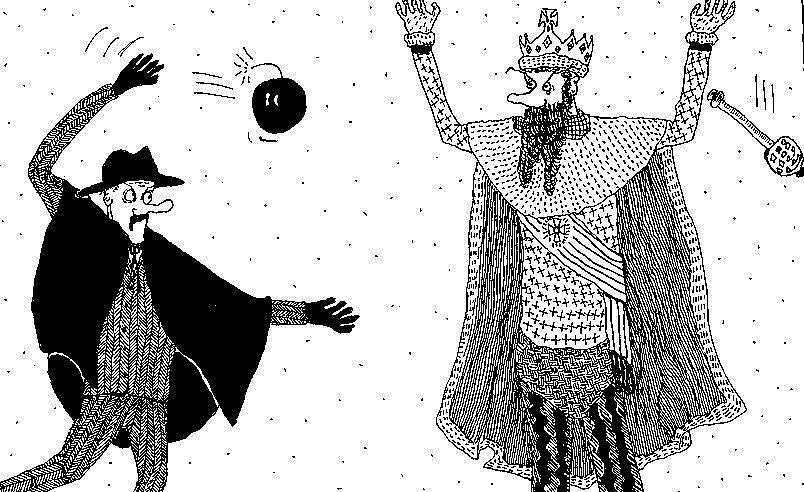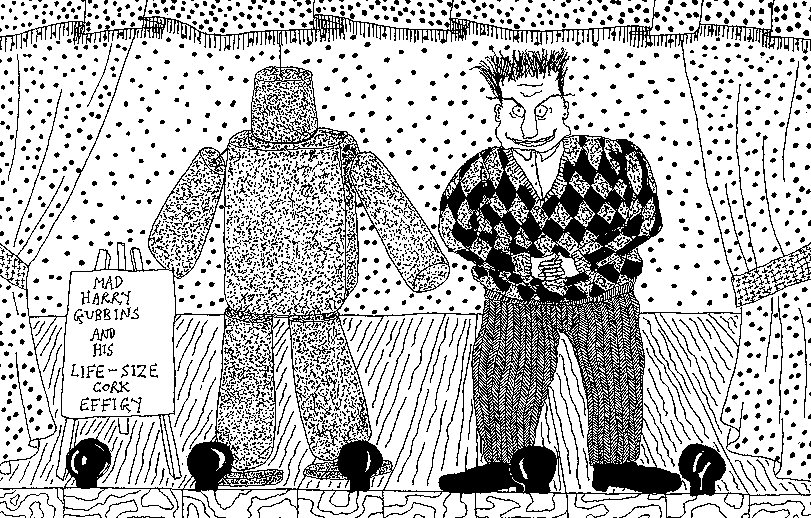And the sea too will vanish, it will boil and seethe and become vapour, just as I foretold, Dobson wrote. It is the final sentence on the final page of the final pamphlet in the notorious series of so-called “cosmological blurtings†he composed during the Space Age. Upon publication, these essays met with a level of derision comparable to the reception given to Philip Gosse’s Omphalos (1857). But at least Gosse – the “father†of Father And Son (1907) by Edmund Gosse – had a coherent, if preposterous, argument to make, trying to reconcile his scientific observations of the fossil record with his Christian beliefs as a member of the crackpot Plymouth Brethren. Dobson, on the other hand, in his blurtings, makes no sense whatsoever. It is as if he is issuing a series of grand statements about the nature of the cosmos, past, present and future, which are wildly contradictory, bonkers, and incomprehensible. Even his prose loses its shine in some of these pieces, where he chunters on about, say, stars and gravel, endlessly repeating himself and, it seems, quite forgetting the niceties of grammar and punctuation.
Marigold Chew tried to dissuade the pamphleteer from making a complete fool of himself. Fearing that what reputation he had would be damaged irreparably by the blurtings, she hid all his pencils in her mysterious cabinet. Dobson outwitted her by ingratiating himself with a charcoal burner, who gave him a couple of sticks of charcoal with which he scribbled away until Marigold Chew discovered them and ground them to obliteration with a pestle and mortar. Dobson hurried back to the declivity in the hills where he had come upon the charcoal burner, but the man had vanished, and in his place was a sparkly-eyed dwarf all dressed in green, with bells upon his cap and a startling affinity with rabbits and hares. He was like a figure from a folk tale, and Dobson wondered if, in that case, he might be persuaded to magick up some writing instruments out of thin air, perhaps as a reward for answering a riddle or three. But the dwarf was merely a dwarf, albeit a flamboyant one who was fond of rabbits and hares, so the pamphleteer trudged back home in a foul temper.
Entering the kitchenette, he rifled through the cupboards, poured all the breakfast cereals out of their cartons into a sack, and retreated to his study. With scissors and a tube of Brian Eno’s Proprietary Extra Sticky Gum For Pasting Purposes™, Dobson painstakingly cut out words from the cereal packaging, arranged them into sentences, and stuck them into his notebook. Not surprisingly, the sections of the blurtings which resulted are particularly dimwitted. He quickly exhausted his supply of cardboard words, and thumped his head repeatedly upon his escritoire in the ravages of despair.
At this stage, Marigold Chew tried to tug Dobson’s head out of the clouds and to fix his attention upon other, mundane topics.
“Why don’t you give these cosmological blurtings a rest, Dobson, and write a pamphlet about an everyday subject? Think what you could make of something like, oh I don’t know, a sack full of mixed breakfast cereals, or a dwarf with rabbits and hares. Those are the sorts of topics that are screaming to be written about, I would have thought. And who better to address them than you?â€
Dobson merely banged his forehead upon his desk again.
That night, the pamphleteer lay on his back in the middle of a field, staring up at the stars. The mania was still upon him. He had come to the field, towards dusk, armed with a paperback botanical guide, wondering if he might find a clump of Isatis tinctoria, or woad, or glastum, from which he could eke some blue dye to daub further blurtings. But he had left it late in the day, and there was not light enough for him to identify with certainty any of the clumps of foliage in the field. And so he stared up at the stars all night, barely blinking, transfixed.
They found him in the morning, flat on his back, soaked in dew. There were four of them, togged out in the apparel of hikers, each of them beardy and bug-eyed and carrying rucksacks packed with enigmatic cargo – measuring instruments and metallic meters with dials and Coddington lenses and bakelite blocks from which dangled wires and clips and hooters and Mackenzie beams and scanners and nozzles. They had maps, too, and big fold-out diagrams, and logbooks of full of arcane jottings. And they had pencils.
Dobson woke up.
“Good morning,†he said, to the quartet of lanky eccentrics looming over him, “And who might you be?â€
“We, sir,†said the lankiest, beardiest, most bug-eyed one, “Are the Brethren of Plymouth. Not to be confused, I hasten to add, with the Plymouth Brethren, a sect of Christian crackpots. We are men of science, men of parascience, of superscience, of uberscience! Our project is to untangle the knot of nature, to lay bare the secret workings of the universe! That is why our rucksacks contain an array of paraphernalia the likes of which will not be found in the rucksacks of ordinary, mortal hiking persons. Here, take a look.â€
And so saying, he plumped his rucksack on the ground and unfastened its flaps and gave Dobson a glimpse of wonders.
“This is all very interesting,†said the pamphleteer, addressing the four of them as one, for now they were huddled so close together that they might have been a single beast with eight legs and four beardy heads, “I am Dobson, the pamphleteer, and I am currently engaged in a series of blurtings which tally uncannily with the aims of your project. Perhaps we should join forces. I see you have pencils.â€
Thus it was that, rather than returning home that morning, Dobson threw in his lot with the Brethren of Plymouth. For three weeks he lived with them at their encampment a stone’s throw from the declivity where he had met both the charcoal burner and the dwarf, and with the aid of borrowed pencils, he completed his cosmological blurtings. When his work was done, he went back to Marigold Chew, in triumph.
Of course, when the pieces were published and comprehensively demolished by the pamphlet-reviewing critics, Dobson’s reputation suffered just as Marigold Chew had said it would.
“I am not an ‘I told you so’ sort of person, Dobson,†she said one morning as she was spreading marmalade substitute on a potato-based snacking treat, “But have you seen what it says in today’s Daily Keep Up To Speed With The Latest Pamphleteering Shenanigans? No? Let me read it to you. ‘Dobson’s reputation will take a long time to recover from the plunge into the uttermost depths it has taken since he published his so-called cosmological blurtings. These witless works are evidence of a weak brain. The best thing Dobson can do is to go into hiding for a decade or so, perhaps by taking up a janitorial post in some farflung place like Winnipeg.’â€
Of course, that is exactly what Dobson did do. Marigold Chew did not join him. She stayed to hold the fort. It was a big fort, with delightful crenellations, and many flags, and it had the shiniest portcullis outside of Navarre.


